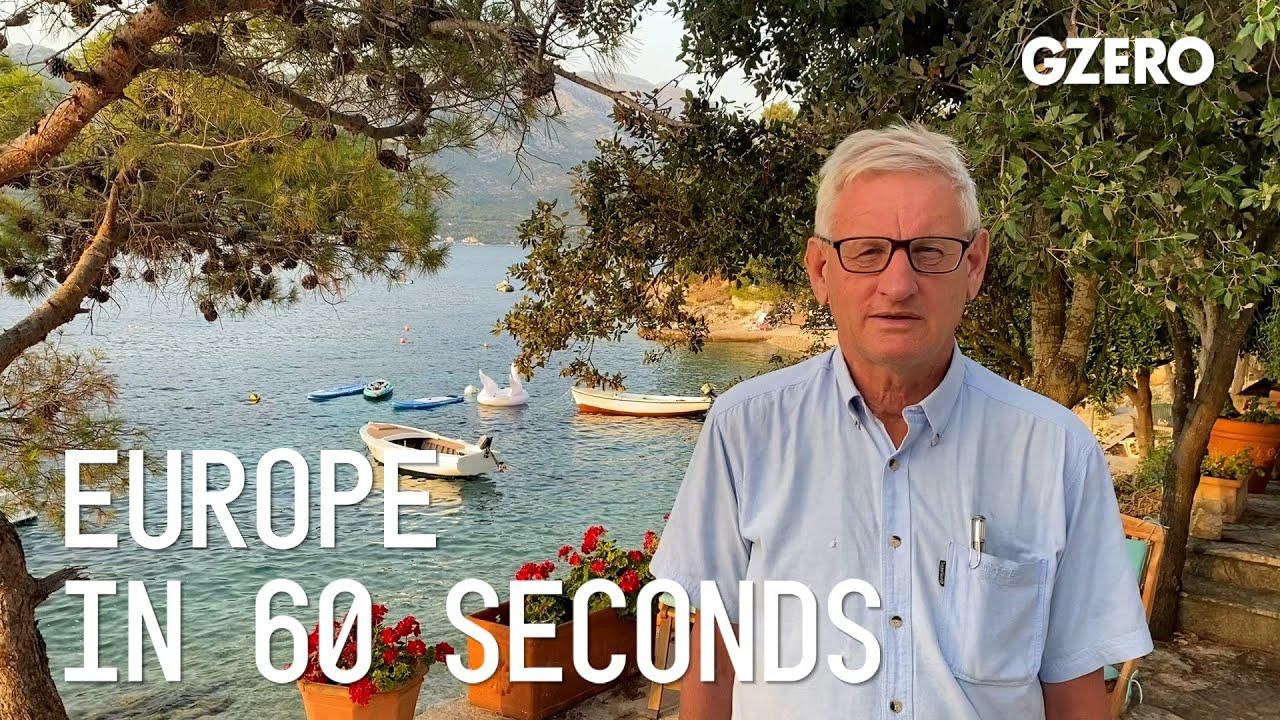GZERO Europe
Bosnian Serbs will boycott government over genocide denial law

Bosnian Serbs Leaving Institutions in Reaction to Genocide Denial Law | Europe In :60 | GZERO Media

Carl Bildt, former Prime Minister and Foreign Minister of Sweden, shares his perspective from Europe:
What is going on in Bosnia with Bosnian Serbs boycotting all major institutions?Well, it's a reaction against a decision that was taken by the outgoing high representative during his very last days, after 12 years of having done very little in this respect, to have a law banning any denial of Srebrenica and other genocides. But this issue goes to very many other aspects of the Bosnian situation. So, it has created a political crisis that will be somewhat difficult to resolve.
Why is the Northern Ireland Protocol blocked?
It's not really blocked. It's just that the Boris Johnson government has suddenly changed its mind. It is the protocol for how to handle the difficult question of Northern Ireland, preserving the Good Friday Agreement in spite of Brexit, that was signed by and celebrated by Boris Johnson himself. And suddenly he's found out that there are some complicated aspects from the UK point of view in that agreement. That's always the case with compromises. And now he wants to amend it or change it and back out of it. And so far, Brussels is thinking, "eh, agreement-disagreement."
Americans are moving less — and renting more. Cooling migration and rising vacancy rates, especially across the Sunbelt, have flattened rent growth and given renters new leverage. For many lower-income households, that relief is beginning to show up in discretionary spending. Explore what's changing in US housing by subscribing to Bank of America Institute.
1,170: The number of high-rise buildings in Kyiv that were left without heating following a barrage of Russian attacks last night on Ukraine’s capital and its energy facilities, per Kyiv Mayor Vitali Klitschko.
Over the past five years, Haiti has endured extreme political turmoil, escalating violence, and one of the world’s worst humanitarian crises.
Microsoft unveiled a new set of commitments guiding its community‑first approach to AI infrastructure development. The strategy focuses on energy affordability, water efficiency, job creation, local investment, and AI‑driven skilling. As demand for digital infrastructure accelerates, the company is pushing a new model for responsible datacenter growth — one built on sustainability, economic mobility, and long‑term partnership with the communities that host it. The move signals how AI infrastructure is reshaping local economies and what people expect from the tech shaping their future. Read the full blog here.